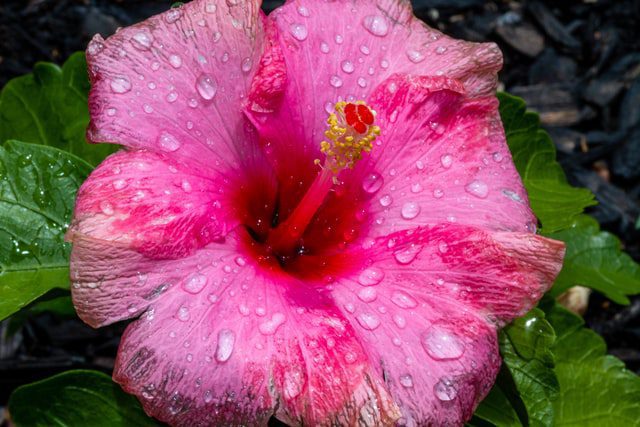Uses
Natural Medicines Comprehensive Database rates effectiveness based on scientific evidence according to the following scale: Effective, Likely Effective, Possibly Effective, Possibly Ineffective, Likely Ineffective, Ineffective, and Insufficient Evidence to Rate. The effectiveness ratings for HIBISCUS are as follows:
Possibly effective for…
- High blood pressure. Most early research shows that drinking hibiscus tea for 2-6 weeks decreases blood pressure by a small amount in people with normal or high blood pressure. Some early research shows that drinking tea might be as effective as the prescription drugs captopril and more effective than the drug hydrochlorothiazide for reducing blood pressure in people with slightly high blood pressure.
Insufficient evidence to rate effectiveness for…
- Abnormal levels of cholesterol or blood fats (dyslipidemia). Some early research shows that drinking hibiscus tea or taking extract by mouth can lower levels of cholesterol and other blood fats in people with metabolic disorders such as diabetes. However, other research shows that it does not improve cholesterol levels in people with high cholesterol.
- Infections of the kidney, bladder, or urethra (urinary tract infections or UTIs). Early research has found that people with urinary catheters living in long-term care facilities who drink hibiscus tea have a 36% lower chance of having a urinary tract infection compared to those not drinking tea.
- Colds.
- Obesity.
- Constipation.
- Fluid retention.
- Heart disease.
- Irritated stomach.
- Loss of appetite.
- Nerve disease.
- Other conditions.
More evidence is needed to rate hibiscus for these uses.
Side Effects Of Hibiscus
When taken by mouth: Hibiscus is LIKELY SAFE for most people when consumed in food amounts. It is POSSIBLY SAFE when taken by mouth appropriately in medicinal amounts. Side effects are uncommon but might include temporary stomach upset or pain, gas, constipation, nausea, painful urination, headache, ringing in the ears, or shakiness.
Warnings & Precautions
- Pregnancy and breast-feeding: Hibiscus is POSSIBLY UNSAFE when taken by mouth in large amounts as a medicine.
- Diabetes: Hibiscus might decrease blood sugar levels. The dose of your diabetes medications might need to be adjusted by your healthcare provider.
- Low blood pressure: Hibiscus might lower blood pressure. In theory, taking hibiscus might make blood pressure become too low in people with low blood pressure.
- Surgery: Hibiscus might affect blood sugar levels, making blood sugar control difficult during and after surgery. Stop using it at least 2 weeks before a scheduled surgery.
Dosage Of Hibiscus
The following doses have been studied in scientific research:
ADULTS
BY MOUTH:
For high blood pressure: Hibiscus tea made by adding 1.25-20 grams or 150 mg/kg of hibiscus to 150 mL to 1000 mL of boiling water has been used. The tea is steeped for 10-30 minutes and taken one to three times daily for 2-6 weeks.
Other
Consult your doctor or pharmacist.
Source
All information has been provided courtesy of MedLinePlus from the National Library of Medicine and from the FDA.



